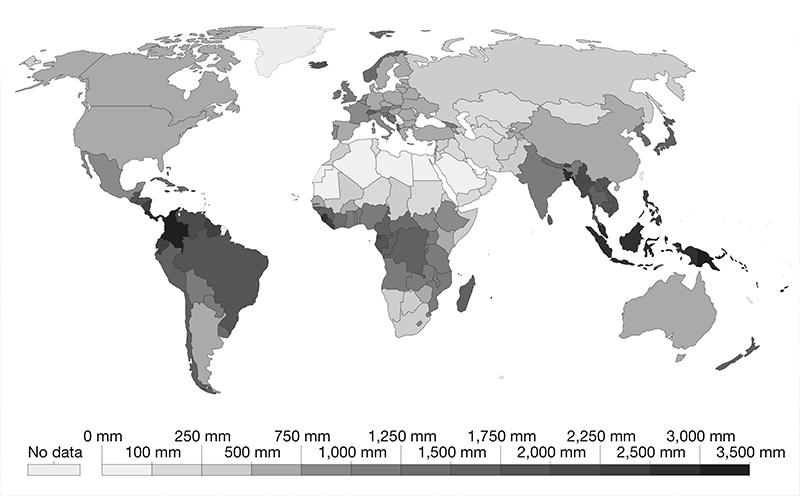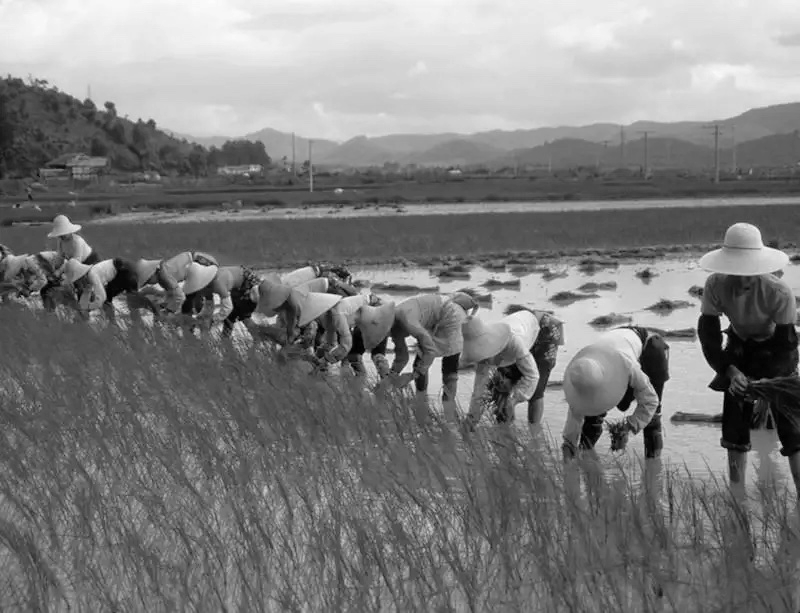As mentioned earlier, Korea’s “collectivism” might originate from Korea’s geographical conditions. Korea belongs to a temperate wet climate with an average annual precipitation of more than 1,000 millimeters making it very suitable land and climate for rice farming.[figure 1] Therefore, Koreans have been a nation that mainly depends on eating rice. The rice crop development in rainy conditions; rice paddies require water and irrigation is essential so water can be delivered to agricultural land. In order to share the water amongst the farmers a waterway that can deliver water has been created, and houses are located around the waterway. These houses surrounding the waterway have developed into a form of a village where neighbors often gather. In addition, there was a high need for cooperative labor in this short period of time since the time frame for farming rice was short. This led to the villagers helping each other with their work and building a community spirit.[figure 2] The long-standing rice farming culture has created values that emphasize the mutual relationship between people in Korean society.
The average annual precipitation is less than 1,000 millimeters,[figure 1] and wheat farming has really developed in the western regions where rain falls evenly throughout the year. The characteristics of wheat mean that it is not necessary to build irrigation facilities on agricultural land, because wheat usually grows well on ordinary land without water, and the land that once farmed wheat was unable to repeat cultivation due to the function of the ground being weakened at that time. In other words, wheat farming does not require work in cooperation. Wheat farming has frequently migrated in order to find new wheat fields; it has naturally led to the forming of an individualistic personality in the western region.
The collective social culture across Korea can also be discovered within the Korean language. The obvious evidence is that the plural pronoun ‘we’ is frequently used instead of ‘I’. There are several theories about the etymology of the Korean word “우리”[uri] which means “we,” but one of the most convincing grounds is that it has a close relationship with solidarity derived from Korean traditional social values, a sense ofcommunity. For example, instead of “my” family and “my” house, it is described as “our” family and “our” house. In addition to that, Koreans say ‘Korea’ in Korean, “우리나라”[urinara] is often used, a combination of ‘our’우리[uri] and ‘country’나라[nara]. This is based on the meaning that we construct our country “together.”

